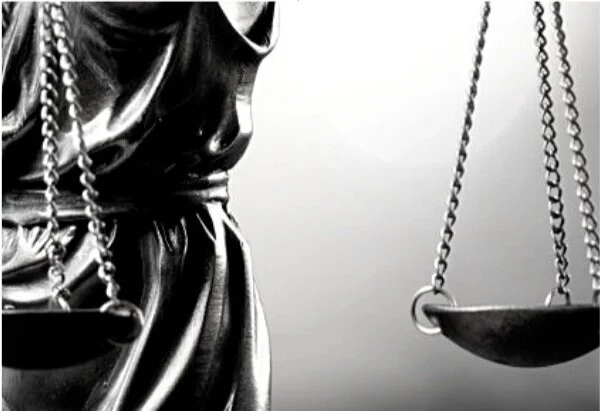Belonging: A Place at the Table (Part 1)
/In January, I became a grandmother for the first time. Our little one came into our family and reminded us once again of the joy and hope of new life. Now almost seven months old, he has become the center of our love and attention. He is learning by how we cuddle him and respond to his every expression of need, by how we smile and sing to him that he is precious in our eyes. He is learning that he belongs to our family.
Belonging is a most basic need of all human beings. When we feel secure in our right to belong, it becomes the bedrock upon which we can build a life. We can be confident that there is a place for us, and that we are valued and have something important to contribute to the world. We can put ourselves out there without fear of making a mistake. We can admit to not knowing, and we can ask for help without shame. We can reach out to make friends expecting that others will want to know us. We can contribute our ideas at work without worrying about being right.
Conversely, a great terror in life is that of being judged and found unworthy of belonging. When this happens, especially in our family of origin, it inhibits the “reaching out movement of our soul.” It can lead to our holding back in life, expecting that life will not be there for us and that we shouldn’t expect others to care. It can lead to despair in the face of life’s challenges. It can also lead to a kind of unrelenting, punishing perfectionism to prove we are invaluable and indispensable. Such extremes are attempts to moderate the soul-crushing belief that we do not belong in any meaningful way to the world we find ourselves in.
Dr. Susan Johnson, a respected family therapist building on early infant attachment research, highlights this important fact of life in her classic book, Hold Me Tight. She reminds us that human beings are hardwired for connection and that even as adults, a panic reaction will be triggered when we sense the slightest break in this connection with important people in our life. Fear of possible abandonment, whether real or perceived, causes fight, flight, or freeze reactions that can look like depression, rage, or indifference. [1]
You may have experienced this sense of disconnect when someone you love is insensitive to or dismissive of your feelings.
Perhaps a partner goes to watch TV when you were hoping they would help make dinner, or they’re on the phone for an hour with a friend when you were planning a romantic evening together.
Perhaps you call a friend to confirm a date and discover they have forgotten and have made plans with someone else.
Perhaps you’re brokenhearted after learning that your significant other has cheated on you, and your overwhelmed parent misses your cues for attention.
Perhaps your boss dismisses your suggestion at work and gives the job to your colleague who you considered to be a friend.
Thousands of little and not-so-little moments of feeling unseen can give credence to the secret narrative that “I am not enough,” and can create escalating conflict and/or distancing in relationships that is not easily understood.
“Guilt” and “Innocence”—New Definitions
From the time we are in diapers, we learn the “rules" of belonging mostly by osmosis—who to like, what to believe, how to behave. In my family, Sunday dinners were sacrosanct. Everyone was expected to be together. We began at 2 pm and could be at the table until 5 or 6 o’clock. Often, we shared this time with extended family or friends.
At 17, when I suggested that my boyfriend and I take my younger brothers bowling after dinner rather than hanging around the table, I knew I had bumped up against a family “rule” when that nagging feeling erupted in my stomach. Later, as the firstborn and only college graduate in my family, I was met with derision when I began postgraduate training in Family Therapy. My father, who had left high school in the 10th grade to help support his widowed mother and his siblings, distanced himself whenever I began to share with my Mom what was coming up in my classes.
This message of disapproval was loud and clear to me. It fueled free-floating anxiety and self-doubt about whether I had a right to follow my calling. It was only after I discovered the work of Bert Hellinger that I began to understand the dynamics between my father and myself. Hellinger, the founder of Systemic Family Constellations, had a unique view of conscience, guilt, and innocence. He described guilt as the consequence of challenging family/system/cultural rules or beliefs, and innocence as the consequence of living within the boundaries of those rules and beliefs.[2]
It was clear to me that my choices were definitely challenging for my family and so the price for me was guilt and anxiety. Frankly, they didn’t know what to make of me. While I knew I was loved, I often felt like an outsider. It took many years of personal work to let go of this sense of not belonging. Constellation work began the healing process for me.
“Unfinished Business” and the Process of Healing
Family Constellation Therapy originally began being practiced in a group setting where volunteers from the group are used as representatives for the “client” and for all the important people in the story. The “client” sits back and watches while the representatives report what they are feeling as they stand in relation to one another. This informs the facilitator who tracks what is missing in the system that would account for the present symptom.
In one particular Constellation workshop, I sought clarity about my ambivalent relationship with my father whose approval I sought but never felt. Representatives for me and for my father were set up facing each other. The person representing my father reported feeling sad and uncomfortable in relation to the person representing me. My representative reported feeling weak and unsure of where to look.
Then, a representative for “his father” was brought in and asked to stand behind the representative for my “father.” My grandfather had been well-educated; he was a musician and was deeply connected to his Catholic faith. He had come to the US from Italy; not speaking English, he had worked menial jobs at best. He died young, leaving my 35-year-old grandmother with five children in poverty. When the representatives for my father and his father were asked to face each other, my “father” reported overwhelming feelings of deep insecurity and grief, and he bowed his head and cried.
This was the beginning of a healing movement for me that connected my grandfather, my father, and me in a way I had never even guessed. It confirmed my intuition about my father’s criticalness and gave me a wider view of our relationship problems. It validated my suspicion that my father felt judged by me. I could see how my education was an apparent indictment of his lack of formal education even though, in truth, he was one of the wisest people in my life.
Once I could acknowledge in my heart how important he was to me, could see all the sacrifices he made for our family, and could admit that I needed him, our relationship changed. He became the proud father I had always yearned for, and I the humble daughter he could embrace even if he didn’t quite understand all of who I had become. I could accept his love while letting go of the losses and regrets that belonged to him, free to move on with my own life. I had found my place in my family.
A Right to Belong: Everyone Has A Place
Hellinger’s important contribution to the field of systems healing teaches that everyone has a right to belong to their family of origin. Everyone has a place in their family line. There is nothing that we can do to forfeit our right of belonging on a soul level, even if we are separated from our family of origin by circumstances or choice.
We belong to them. They belong to us. For better or worse, we are part of a multi-generational kinship network consisting of everyone who is formally and informally part of the family story. We inherit not just the color of our eyes, hair, and skin, but the residual energy and patterns from their unfinished and unacknowledged emotional wounds from trauma and loss as well.
It can be difficult to embrace this idea, even easy to resist it. It is even understandable to do so—for example, when a child rejects a parent in his heart for childhood abuse or neglect, “I’ll never be like my father/mother.” When we do so, however, we cut our self off from the family soul, the very life force passed down through the generations which preceded our birth.
We may believe that we are better than our parents, but that puts us out of order in the hierarchy of life. We cannot become bigger than those who come before us without weakening the connection to the flow of love and life that passes through them to us. In the extreme, we may become more a shell than a fully present, whole person. Children who have been adopted often describe this void that they don’t understand and can’t let go of—until they make peace with their birth mother if only in their heart.
There are many other unintended consequences of blocking the emotional/spiritual connection to our parents. We may put up barriers to intimate relationships in an attempt to avoid further possible disappointment or rejection. We may have difficulty feeling a full range of emotions. We may even come to believe that we are the sole creators of our destiny and secretly believe that we really don’t need anyone else. Most of this is unconscious, visible only to those closest to us who feel our disconnection.
“When I find my home, my soul is at rest,
When I find my place, peace.”
-Zen teaching
On the other hand, when we fully take into our heart the gift of life from our parents and those who came before us, we can experience peace in our heart. This means accepting without judgment the facts of our lineage. It does not mean denying or minimizing our family’s history. Rather, it is about accepting “what is” with humility. “There but for the grace of God go I.”
Everyone has a story behind their behaviors. When we can see it and acknowledge it without excuse or judgment, we are more able to accept life as a gift and get on with the work of creating our own destiny. Something loosens in our heart. We become freer to move toward becoming truly compassionate to ourselves and to others.
Up next, Belonging (Part 2)—examining belonging within today’s society.
Share your comments at the bottom of the page.
© Whatismyhealth
Special thanks to our resources:
1 Johnson, Susan. 2008. Hold Me Tight. New York: Little, Brown and Company.
2 Hellinger, Bert. 1998. Love’s Hidden Symmetry. Germany: Zeig Tucker & Theisen Inc.





























Understanding our attachment styles can help us bypass destructive strategies and find a more authentic connection.